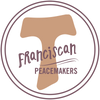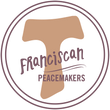Strips, Strolls and Spirituality
6 AM, Monday morning, I pull into the parking lot at St. Martin de Porres and the Kia van is fired up and waiting, Deacon Steve and lunches at the ready. We are hitting the streets as a part of my orientation to the work of the Peacemakers. Where are we headed? “The strips and strolls”, Steve tells me, the four areas of town where women are working. And then my first naïve question for the week (of which there were many): “Really , 6 AM on Monday morning and people are soliciting sex?”
Really.
I am not a person who shies away from the tough stuff. Maybe even the sort that goes right for it. You know, sometimes might be seen as bravery, but mostly it’s just my nature – act, then think. A strength and a weakness, for sure. In any case, I’ve spent much of my working life in places that can be difficult: homeless shelters, meal programs, developing countries and neighborhood in disarray. And I have educated myself on many issues of social justice – climate change, poverty, racism, globalization, violence.
But there’s this one issue that I’ve been hesitant to learn about – human trafficking. Whether this avoidance was conscious or subconscious, I’m not sure, but I know that as the week of doing visits to the Strips and Strolls went on, my naïveté was on display. Like: “Wouldn’t pimps be interested in the health of the ladies working for them – you know, provide health care and food and all that they need to stay productive? I mean, are there any good pimps?”
And Steve generously pauses long enough for me to answer my own question – to pimps and traffickers, these workers are disposable. It’s such a painful thought – that right now, in a neighborhood near you, a person is buying and selling the body of another – of a child, even – for profit. The pain of it all is a lot to bear. And you can see it in the eyes of the women we find that week – lots of women, it turns out, as we run out of lunches by Wednesday.
We pull the van up to women at work, roll down the window and offer what we have. “Thank goodness you are here, I’m starving.” “Do you have any sweaters in there, this rain is chilling me!”, “I could really use a Band-aid – do you have a first aid kit?”, “Any chance I can get a lunch for my girl – she’s in the car, not feeling great today”. And on and on.
So these very basic needs are being met through the street outreach. Life-sustaining stuff: turkey sandwiches, bottled water, friendly smiles and “God bless yous”.
But there’s more. You see, there are these relationships of kinship. First, that of Steve and Mary with each other. If you want to laugh a lot, join the two of them in the van on outreach and just observe their interplay – maybe try to tune out the activity on the streets around them – because that my infuriate/enrage/sadden/depress you. But this pair in ministry together: they are a great team. They laugh a lot, with Steve offering this: “You’ve got to laugh, really, to keep doing this work.” Praying with the Clare community at the regular Wednesday house meeting, Mary prayed for each around the table, in gratitude for what they bring to the community. When she got to Deacon Steve, she just said “and thank you God for Steve, for (dramatic pause)… oh, Lord… you know.” And the ladies of Clare community laughed with her and said “Yes, Lord, you do.”
Then there’s the relationships being built with the women on the street – some who Steve has known for 20 plus years. The women who trust: telling Steve about the trouble that’s been going on in the neighborhood – the guy who has been beating up on some women when they won’t get in his car, the woman who is maybe ready to enter recovery but who is hesitant because 30 years of heroin use is maybe insurmountable in her mind. The women building trust: Asking questions like “Do you help people get un-homeless?” or “ Can I take one of your cards in case I need to talk to someone?” or “The last outreach van said they’d go check on these four homeless folks around the corner but they didn’t drive that way – will you drive that way and see if they need food?”
And the skeptical, perhaps fearful women who look away or say no when we ask if they’d like a lunch. Those who check out the sign on the window and wave us off – maybe fearful that we’ll judge them or maybe dealing with pride and not wanting to admit they need help (I can relate to that type) or maybe just ladies walking around that time of day not working. Who knows? But of the women we encounter, not many shoo us off. Most of the women we saw this week engaged with us. Not for long, but for long enough that relationships can be built. Slowly, over many mornings of outreach.
“Trust leads to transformation” is something I heard a friend say recently – and so these small moments building trust lead us to the Clare community. At the weekly meeting, we discussed the residents’ schedules for the week: acupuncture, therapy, going to the gym, NA meetings, sending birthday card to the estranged son, wondering the best way to mop the Clare community floor, learning to make bath bombs and cap lotion bottles. This was a highlight of my week – thinking that here are a couple women who used to be out on the strips and strolls, whose lives are now focused on healing, on health of mind, body and soul, whose relationships are being mended , who are creating a home and a life for themselves, learning to do work that is creative and life-giving. What a transformation.
This is the Franciscan way – an engaged spirituality of those in right relationship – the sister-brotherhood of all. I remember something Richard Rohr said in an online course I took on Franciscan spirituality: Jesus didn’t say “think about this idea”, but rather “take this bread and eat”. Francis reminded us that the spirituality Jesus demonstrated was an engaged and embodied spirituality. Jesus, and Francis following in his footsteps – went to where the pain was over and over, bringing healing and mercy wherever they went. After showing up to where the pain is over and over and over again, bringing the goodness one has to offer, simple as it is in a smile and a bag lunch – all this provides a gateway to healing, a transformation through the trust and kinship that is developed over time. And isn’t that a journey we are all called to go on?
What a gift it is to be on this journey with the Peacemakers.




